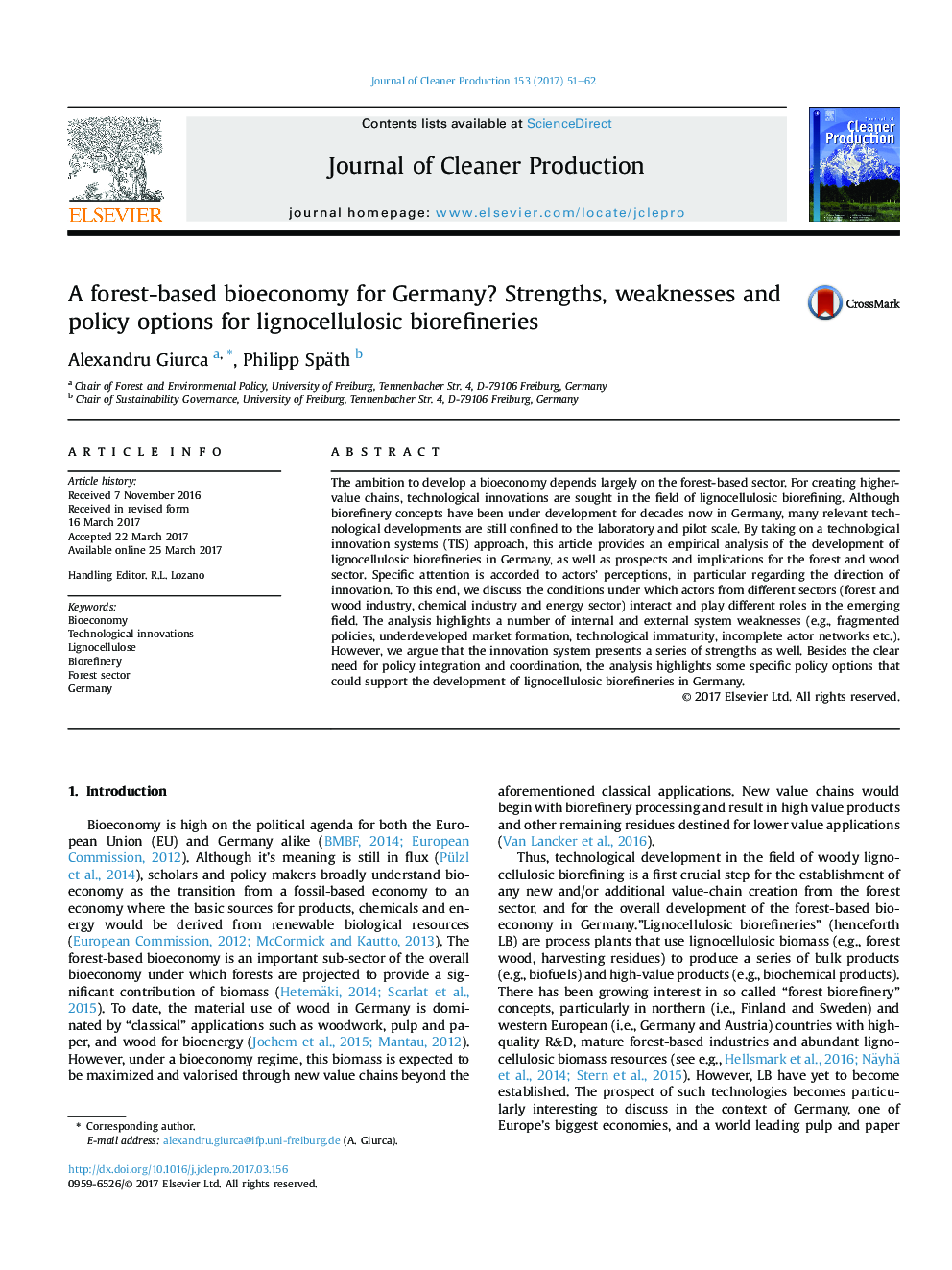| Article ID | Journal | Published Year | Pages | File Type |
|---|---|---|---|---|
| 5479620 | Journal of Cleaner Production | 2017 | 12 Pages |
Abstract
The ambition to develop a bioeconomy depends largely on the forest-based sector. For creating higher-value chains, technological innovations are sought in the field of lignocellulosic biorefining. Although biorefinery concepts have been under development for decades now in Germany, many relevant technological developments are still confined to the laboratory and pilot scale. By taking on a technological innovation systems (TIS) approach, this article provides an empirical analysis of the development of lignocellulosic biorefineries in Germany, as well as prospects and implications for the forest and wood sector. Specific attention is accorded to actors' perceptions, in particular regarding the direction of innovation. To this end, we discuss the conditions under which actors from different sectors (forest and wood industry, chemical industry and energy sector) interact and play different roles in the emerging field. The analysis highlights a number of internal and external system weaknesses (e.g., fragmented policies, underdeveloped market formation, technological immaturity, incomplete actor networks etc.). However, we argue that the innovation system presents a series of strengths as well. Besides the clear need for policy integration and coordination, the analysis highlights some specific policy options that could support the development of lignocellulosic biorefineries in Germany.
Related Topics
Physical Sciences and Engineering
Energy
Renewable Energy, Sustainability and the Environment
Authors
Alexandru Giurca, Philipp Späth,
